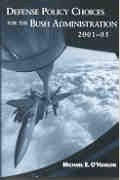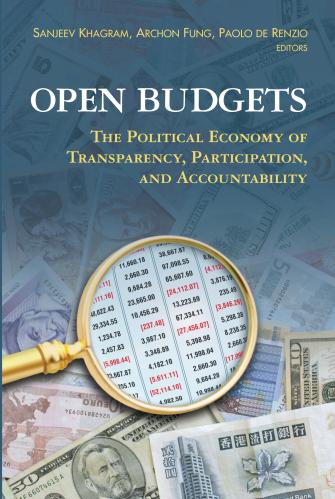In week seven of Donald Trump’s presidency, Republicans unveiled a replacement for the Affordable Care Act, the White House enacted a new executive order on refugees and immigration, and North Korea rattled its neighbors once again. Here’s an update on what Brookings experts are saying in the first 100 days about the Trump administration’s policy choices, personnel decisions, and engagements with global and domestic events. To receive daily updates on new Brookings research, commentary, and events, subscribe to our newsletters.
Read what Brookings experts had to say about the First 100 Days in: Week Six | Week Five | Week Four | Week Three | Week Two | Week One.
ON DOMESTIC & ECONOMIC POLICY
In a new 5 on 45 podcast episode, Henry Aaron, senior fellow in Economic Studies, discusses the impossible task that President Trump has handed congressional Republicans by making promises on a replacement for the Affordable Care Act that simply cannot be achieved.
In anticipation of the official estimates from the Congressional Budget Office of how the GOP replacement plan, the American Health Care Act, could impact insurance coverage, Matthew Fiedler and Loren Adler expect the CBO to estimate an increase of no fewer than 15 million uninsured Americans.
Elaine Kamarck gives a brief history lesson of the Watergate scandal after Google searches for the term peaked when President Trump accused President Obama of wiretapping Trump Tower. She writes that within the Trump administration itself, “There are echoes of Watergate everywhere.”
In a new paper, Senior Fellow Philip Wallach discusses the parallels between today’s political chaos in the U.S. and a neglected period of American history: the demise of the American Whig Party. Specifically, he argues that the Republican Party’s recent infighting, its shift to nativism and populism, and its embrace of an outsider presidential candidate all bear striking similarities to the Whigs’ self-destruction. Read a short blog post summarizing the paper here.
ON FOREIGN POLICY & NATIONAL SECURITY
Robert Kagan, senior fellow in Foreign Policy, argues that Russia’s ability to manipulate U.S. elections is a national security issue and not a political one, writing, “When Republicans stand in the way of thorough, open and immediate investigations, they become Russian accomplices after the fact.”
Nonresident Senior Fellow Peter Mandaville released a new policy brief where he makes the case for preserving the State Department’s Office of Religion and Global Affairs, despite the administration’s proposed budget cuts and pledges to downsize. He writes that, “The office’s budget is mere pocket change in the grander scheme of national security funding and its many contributions…far outweigh its costs.”
Jessica Brandt, an associate fellow in Foreign Policy, reviews Trump’s revised travel ban and its significance for the international community in a new 5 on 45 podcast episode. She says, “It sends a powerful signal to our allies across the Atlantic, who have taken in a substantial number of refugees over the past few years from Syria and elsewhere. It’s not a message of solidarity.”
Bruce Jones and Jonathan Pollack write that, despite policy dysfunction in other areas, President Trump deserves credit for his sober and focused approach to the North Korean nuclear threat. Nonetheless, they conclude, “All policy options on the peninsula are bad.”
George Ingram, a senior fellow in the Global Economy and Development program, argues that the president’s proposed cuts to the U.S. international affairs budget are likely to endanger programs that save lives and serve American interests abroad.
Senior Fellow Steven Pifer outlines some of the pitfalls and budget constraints of possible responses from the Trump administration to the recent Russian deployment of an intermediate-range cruise missile, which violated a 1987 arms control treaty.
Robert Einhorn, a senior fellow in the Arms Control and Non-Proliferation Initiative at Brookings, released a new report outlining the key nuclear non-proliferation challenges faced by the Trump administration along with recommendations on how to address them.
Nonresident Senior Fellow Sergey Aleksashenko warns the Trump administration against both dovish and hawkish reactions to Russia’s meddling in the U.S. election, arguing instead for forcing Vladimir Putin to face some of the economic problems he has created at home.
—
For more details policy recommendations and analyses from Brookings experts for the new administration, see “Brookings Big Ideas for America” on issues including the threatened middle-class dream in America, health care, criminal justice reform, infrastructure, U.S. alliances, nuclear weapons, terrorism, and regional conflicts.




Commentary
President Trump’s First 100 Days: What Brookings experts are saying, 3/10/17
March 10, 2017